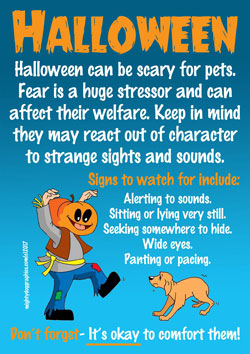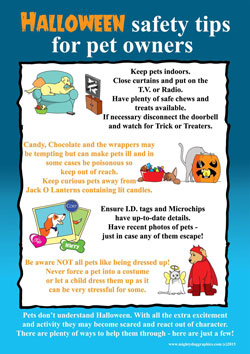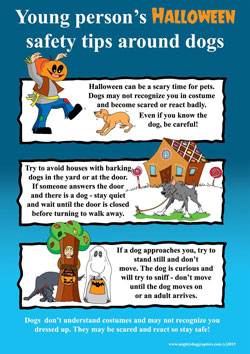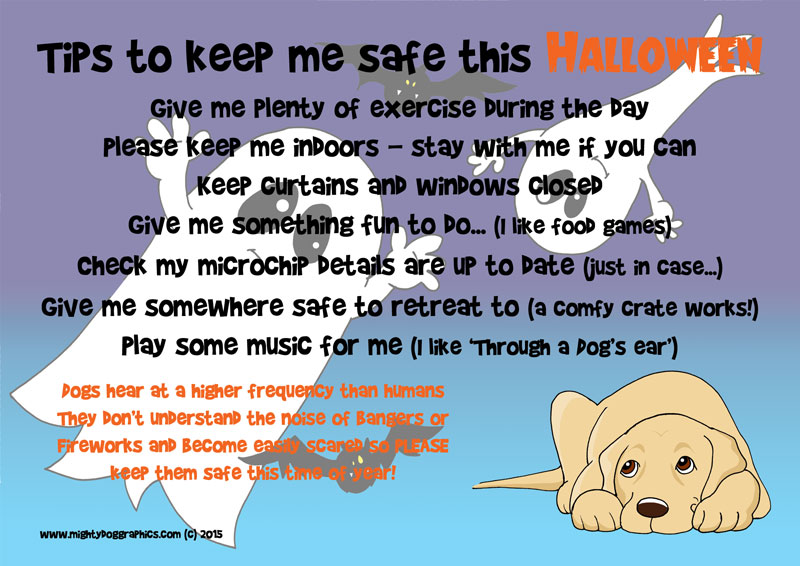 < Updated 17JUN21 >
< Updated 17JUN21 >
< A short link to this page – http://bit.ly/Summer-Pet-Tips >
< Listen to our most recent Woof Meow Show podcast on this topic >
< Listen to a 2021 interview on this topic from WGUY A Local Affair >
As summer approaches, not only do the temperatures rise, but we also tend to spend more time outside enjoying the beautiful weather. With the warm weather come some potential dangers and several things that need to be considered if we are to keep our pets safe and healthy. With a few simple precautions, summer can be a time of great fun for both you and your pets. So simply, take the time to plan ahead and have a great summer!
The Heat & Sun
Our pets, especially the young, elderly, and overweight, are at increased risk  for dehydration and heatstroke as the temperatures rise; both can be life-threatening.
for dehydration and heatstroke as the temperatures rise; both can be life-threatening.
Signs of heat exhaustion include:
- rapid breathing
- heavy panting
- excessive salivation
- fatigue
- unsteadiness and staggering
- muscle tremors
- glazed eyes
- a fast pulse
Signs of even more dangerous heat stroke include:
- high body temperature
- vomiting & diarrhea
- a deep red or purple tongue and gums
- collapse
If you observe these symptoms in your pet, you need to get your pet out of the heat immediately, and you need to contact a veterinarian as quickly as possible. You can use cool water (not cold!) to cool down your pet, as you transport them to your veterinarian. Do NOT place an overheated pet in cold water. Misting them with cool water and placing wet towels on their neck, chest, and limbs will aid in cooling during transport. Offer them ice chips but do NOT force them to drink.
If your pet experiences heat-related distress, they need to be seen by your veterinarian, even if they seem to be okay, to rule out any unseen damage.
Things you can do to help prevent heat-related injuries are:
- If you leave a pet in the car, you need to check on them every few minutes – No Exceptions! When the temperature outside is 80 degrees, the temperature inside your vehicle will reach 100 degrees in 15 minutes, and 120 degrees in 30 minutes, even with the windows open half-way. Leaving your pet in your car in the summer can be fatal!
- Once the outside temperature reaches 70, if your pet doesn’t need to go with you, the best place for them is at home.
- Do not rely on the vehicle’s air conditioning, or if you do, you must continue to check on your pet every few minutes to ensure that the car and AC are still running.
- Make sure your pet always has access to fresh cool water, and if outside, shade. Be aware that not all dogs will move out of the sun when they need to, so if they are outside, you need to check on them regularly.
- Keep your pet well groomed, and if they have a long or dense coat and undercoat, make sure you keep it mat free. Your pet’s guard hair, or outer coat, actually acts as an insulator which keeps them from overheating in the summer and warm in the winter. We generally do not recommend shaving down an animal with a double coat unless there is a medical reason or if the coat is severely matted and brushing out the mats would cause the pet distress. < FMI – Should you shave your dogs this summer? – http://www.dogsnaturallymagazine.com/why-you-shouldnt-shave-your-dog-in-summer/ >
- If the sun can get to your pet’s skin, you will need to apply sunscreen regularly or keep them out of the sun, to avoid sunburn.
- Brachycephalic pets (those with short noses like Pugs and Persians) often have a more difficult time breathing in hot, humid weather because of their squashed noses, and are even more susceptible to heat-related
- When you go for walks or enjoy other outdoor activities with your pets, make sure you bring along enough fresh cool water for them. Also, it helps to plan these activities for early morning or late evening when the temperatures are a bit cooler. You should be just as concerned about the temperature of the surface you are walking on (asphalt) as the air temperature.
- Make sure your pet does not overly exert themselves. Exercise is essential, but too much activity when it’s hot and humid contributes to dehydration and can result in heatstroke. Like some people, not all pets know when to stop and rest.
- Avoid walking your pet on asphalt. Asphalt absorbs heat and can become hot enough to burn the pads on your pet’s feet. Check surfaces by placing the back of your hand on the surface and hold it there for five seconds. If the temperature is too hot for you, it is too hot for your dog’s Either walk your dog on the grass or use paw wax or dog boots designed to protect their pads.
- To keep ourselves comfortable, we often to keep windows open during the summer months. Make sure screens are secure so that your pet cannot escape or accidentally fall out of a window.
Posters To Remind You ( click on image to download )


Water Safety
The summer months also bring more opportunities to play in the water for both people and pets. While it brings much joy, water also is a source of concern. Some things to consider:
- Many dogs enjoy swimming, but some dogs don’t swim well, and even the
 best swimmers can get tired. Life jackets for dogs can save lives.
best swimmers can get tired. Life jackets for dogs can save lives.
- If you have a pool, your dog needs to be supervised whenever they have access to the pool. You should take the time to train your dog how to enter and exit the pool from the shallow end safely. A life vest is just as appropriate for the pool as it is for the pond, lake, or ocean.
- Saltwater can damage a dog’s coat and skin, so after any ocean dips take the time to hose them down with fresh water.
- Don’t let your pet stay wet! For some dogs, wet fur can lead to skin irritations, otherwise known as “hot spots.” These can be a source of discomfort and infection for your pet.
Bug Bites, Parasites, and Pollen
Insects also enjoy the summer weather, and if they are a pest to us, they may be a pest to your dog and cat as well.
 Black Flies, Maine’s special nemesis, seem to love to feast on the tender underbellies of both dogs and cats. While some pets are oblivious, some react the same way we do, itching, scratching, and the equivalent of pet cursing. There are several insect repellents that are safe to use on pets that will help keep black fly and mosquito bites to a minimum. Please stop by and ask us about the latest products we have in the store to combat these pesky pests. Before using an insect repellent for humans on your pet, read the label. Many products for humans, even kids, may not be safe for pets. Avoid products containing DEET!
Black Flies, Maine’s special nemesis, seem to love to feast on the tender underbellies of both dogs and cats. While some pets are oblivious, some react the same way we do, itching, scratching, and the equivalent of pet cursing. There are several insect repellents that are safe to use on pets that will help keep black fly and mosquito bites to a minimum. Please stop by and ask us about the latest products we have in the store to combat these pesky pests. Before using an insect repellent for humans on your pet, read the label. Many products for humans, even kids, may not be safe for pets. Avoid products containing DEET!- During the summer months, our pets are at risk of getting heartworm from a mosquito bite. This parasitic worm is more of a threat to dogs, but even in cats, it can be fatal. Discuss heartworm testing and prevention with your pet’s veterinarian at their annual exam.
- Ticks have become a very serious problem in Main, and it’s no longer just Lyme disease that is a concern. Tick-borne conditions we now need to worry about include; Anaplasmosis, Babesiosis, Borrelia miyamotoi, Ehrlichiosis, Lyme (Borrelia burgdorferi), Powassan Encephalitis, and Rocky Mountain Spotted Fever. There may be other tick-borne diseases not yet detected in Maine or not yet identified by medical science. The symptoms of tick-borne diseases go well beyond the classic bullseye rash and joint pain, and can even include severe behavioral symptoms. < FMI – Tick-borne diseases in Maine – A Physician’s Reference Manual – https://www.maine.gov/dhhs/mecdc/infectious-disease/epi/vector-borne/documents/tick-reference-guide.pdf >. The May 25, 2018 issue of The Week notes “Ticks and mosquitoes that can be found in the woods, fields, and even cities are transmitting Lyme disease, anaplasmosis, babesiosis, Rocky Mountain spotted fever and a host of other illnesses. Reported cases of these diseases more than tripled in 2004 and 2016, according to the Centers for Disease Control and Prevention.”
- Keeping your yard well-maintained is key to keeping your pets tick free. Keeping the grass short and keeping the pets out of the brush are recommended. At Green Acres Kennel Shop we have been using a service to treat our lawn areas every month with a safe repellent made from essential oils, and it works very well. If you would like more information, contact Don.
- You may also wish to use products with your pets to keep them safe from ticks. You have many choices. At Green Acres Kennel Shop, we are currently recommending safe and effective products from Earth Animal in the form of collars, liquid topical and herbs your pet gets in the form of a powder or liquid. < FMI – Products We Recommend – Earth Animal Tick & Flea Control – http://bit.ly/PrdRec-EarthAnimalTick-Flea >.
- You should also definitely talk to your veterinarian about preventative products if your pet is likely to be in areas where they may pick up ticks. A discussion with your veterinarian is essential if you have multiple species of pets in your home as some of the products used for tick and flea controls on one species may be harmful to others. Also, be aware that the FDA has issued warnings on some of these products. < FMI – Animal Drug Safety Communication: FDA Alerts Pet Owners and Veterinarians About Potential for Neurologic Adverse Events Associated with Certain Flea and Tick Products – https://www.fda.gov/animal-veterinary/cvm-updates/animal-drug-safety-communication-fda-alerts-pet-owners-and-veterinarians-about-potential-neurologic
- Fleas become more of a problem, particularly towards the end of summer. These small insects like to live, feed, and breed on our pets. Feeding involves a bite to get a blood meal, which causes the classic itch response we see in many pets. Some pets are more allergic to flea bites, and just a couple of fleas can make their lives miserable; severe infestations can even cause anemia.
- Products to control fleas, often from the same sources cited above for use with ticks can be very helpful. Our personal preference is for those that are the least toxic, and are least likely to harm or pets, while still being effective.
- While rare, pets can have an allergic reaction to being stung by bees, wasps, and the like. Such a sting can be more severe for brachycephalic pets because their breathing is already compromised due to their anatomy. If you suspect such a reaction, you need to get your pet to a veterinarian immediately.
- Tree and grass pollens make my eyes water, nose run, and if the lawn has just been mowed, I itch all over. Some pets can also experience seasonal allergies. In addition to those above, another common manifestation of seasonal allergies is the continual licking and chewing of feet. If you see these symptoms, talk to your veterinarian, and they can assist you in finding relief for your pet.
Outdoor Chemicals
 Lawn fertilizers, herbicides, pesticides, fungicides, insecticides, rodenticides and all sorts of other “…cides” are used routinely in our environment to kill something we don’t like. These poisons can all be toxic to our pets, and since our animals cannot read little lawn signs or product labels, we need to watch out for them. Read product labels and keep your pet away from areas where these products have been applied. Remember – our pets aren’t wearing gloves or shoes but run around naked and then clean themselves by licking, increasing their exposure to these products.
Lawn fertilizers, herbicides, pesticides, fungicides, insecticides, rodenticides and all sorts of other “…cides” are used routinely in our environment to kill something we don’t like. These poisons can all be toxic to our pets, and since our animals cannot read little lawn signs or product labels, we need to watch out for them. Read product labels and keep your pet away from areas where these products have been applied. Remember – our pets aren’t wearing gloves or shoes but run around naked and then clean themselves by licking, increasing their exposure to these products.
While we usually think of mulch as pretty innocuous, cocoa mulch can be deadly if ingested and has a delicious scent to some animals.
Family & Holiday Gatherings
Summer is also a time for family gatherings, celebrations, and vacations. Depending on your pet’s temperament, these can range from good times to scary events. These simple rules will help you keep your pet safe during the  festivities.
festivities.
- Put your dog in his crate with a bone or favorite chew toy, at least during the most hectic times – when guests are arriving and leaving as well as when meals are being prepared and served. Make sure your guests know that they are to leave your pet alone in this situation.
- Assign one adult to be in charge of each of the dogs, to watch for signs of stress and to protect the dog from unwanted attention from children. At the same time, assign one adult to supervise each baby or toddler, with no other tasks assigned to them. Make sure that ALL interactions between pets and children are supervised by an adult.
- Not every dog likes every person – ALWAYS let your dog decide if they want to meet someone new.
- If you are quite sure your pet will not enjoy the increased activity due to the event, or if you will be more relaxed knowing your pet is in a safe, pleasant environment, consider boarding your pet the day and night of the event.
- Fireworks, with their loud booms and bright flashes of light, can be very frightening to pets. If they’re right in your backyard or your neighbor’s backyard, they can not only be alarming but can pose a danger to our pets. Keep your pets inside during any personal firework activity. If you go someplace to see the fireworks, I would advise you to leave your pet at home in a safe, quiet location. They’ll be glad you did.
Vacations & Traveling with Your Pet
While there are more hotels, resorts, and campgrounds that are “pet-friendly,” most do not allow you to leave the pet in your room or at your campsite unattended. That may limit where you can go and what you can  do on your vacation as there are many places pets are not allowed, such as restaurants, museums, and other tourist attractions.
do on your vacation as there are many places pets are not allowed, such as restaurants, museums, and other tourist attractions.
- If you travel with your pet, even just to camp, make sure they are wearing ID tags or have been micro-chipped. You may want a unique ID tag just for when you travel that lists your mobile phone number or the name of the place you and your pet are staying.
- Take your pet’s medical records with you as well as contact information for your regular veterinarian. If you are more than an hour’s drive from your veterinarian, make sure you have phone numbers of other veterinarians in the area where you are staying.
- If you go hiking or camping with your pet, plan ahead. Make sure you have sufficient water and snacks for both of you, a first aid kit, as well as poop bags. Have your dog on a leash – it’s the law in Maine and is intended to keep your pet and others safe. If your dog is frightened by something and runs off, you might not get him back. Lastly, have a plan in mind for getting your dog to safety if they become sick or injured on the hike. If you are alone, weigh 115lbs, and your dog weighs 120lbs, could you carry them to safety 5 miles away?
Recommended Resources
Products We Recommend – Earth Animal Tick & Flea Control – http://bit.ly/PrdRec-EarthAnimalTick-Flea
Mighty Dog Graphics – Summer Heat Hazards – http://blog.greenacreskennel.com/2018/05/27/shared-facebook-post-mighty-dog-graphics-summer-heat-hazards/
Canine Behavior – Dogs, Summer, and Behavioral Issues – http://blog.greenacreskennel.com/2015/06/01/canine-behavior-dogs-summer-and-behavioral-issues/
Traveling – Do you take the dog along or leave him with someone? – http://blog.greenacreskennel.com/2016/04/11/traveling-do-you-take-the-dog-along-or-leave-him-with-someone/
Pet Care Services – Please Be Cautious When Choosing Who Cares For Your Pets – http://blog.greenacreskennel.com/2016/04/11/pet-care-services-please-be-cautious-when-choosing-who-cares-for-your-pets/
Pets, Who Cares for Them When You Are Away? – http://blog.greenacreskennel.com/2015/09/01/pets-who-cares-for-them-when-you-are-away/
Other On-Line Resources
Tick-borne diseases in Maine – A Physician’s Reference Manual – https://www.maine.gov/dhhs/mecdc/infectious-disease/epi/vector-borne/documents/tick-reference-guide.pdf
Animal Drug Safety Communication: FDA Alerts Pet Owners and Veterinarians About Potential for Neurologic Adverse Events Associated with Certain Flea and Tick Products – https://www.fda.gov/animal-veterinary/cvm-updates/animal-drug-safety-communication-fda-alerts-pet-owners-and-veterinarians-about-potential-neurologic
Should you shave your dogs this summer? – http://www.dogsnaturallymagazine.com/why-you-shouldnt-shave-your-dog-in-summer/
Summer and Hot Weather Pet Care Tips 2021 – https://traffic.libsyn.com/secure/woofmeowshow/WoofMeowShow-2021-06-05-Summer_and_Hot_Weather_Pet_Care-2021.mp3
Summer and Hot Weather Pet Care Tips 2019 – http://traffic.libsyn.com/woofmeowshow/WoofMeowShow-2019-06-08-Summer_and_Hot_Weather_Pet_Care_2019.mp3
Summer and Hot Weather Pet Care Tips 2018 – http://blog.greenacreskennel.com/2018/05/27/podcast-summer-seasonal-pet-tips-2018/
Summer and Hot Weather Pet Care Tips 2017 – http://blog.greenacreskennel.com/2017/06/12/podcast-summer-seasonal-pet-tips-2017/
Summer and Hot Weather Pet Care Tips 2016 – http://traffic.libsyn.com/woofmeowshow/WoofMeowShow2016-06-18-Summer_Seasonal_Pet_Tips.mp3
Pet Tip – Summer Heat and Pets in Cars – http://traffic.libsyn.com/woofmeowshow/Pets-Cars-Summer.mp3
Pet Tip – Pets and Summer Heat, Water, Shade, Asphalt & Exercise – http://traffic.libsyn.com/woofmeowshow/Cool_Water-Shade-Asphalt_and_Exercise.mp3
Pet Tip – Summer Heat – Exercise and Windows – http://traffic.libsyn.com/woofmeowshow/Heat_and_Exercise.mp3
Pet Tip – Summer Heat and Grooming – http://traffic.libsyn.com/woofmeowshow/Heat_and_Grooming.mp3
Pet Tip – Summer Water Safety for Pets – http://traffic.libsyn.com/woofmeowshow/Water_Safety.mp3
Pet Tip – Summer Family Gatherings – http://traffic.libsyn.com/woofmeowshow/Pet_Tip-2014-05-18-2014-05-24-Summer_Family_Gatherings.mp3
Pet Tip – Get Ready for the 4th of July – http://traffic.libsyn.com/woofmeowshow/Pet_Tip-2014-06-29-2014-07-05-4th_of_July.mp3
Pet Tip – Pets and the 4th of July – http://traffic.libsyn.com/woofmeowshow/Pet_Tip-2015-06-28-4th_of_July.mp3
©2021, Donald J. Hanson, All Rights Reserved <Click for Copyright and Use Policy>
 < Click to Listen to Podcast >
< Click to Listen to Podcast >













![[ File # csp15483120, License # 3214320 ]<br /> Licensed through http://www.canstockphoto.com in accordance with the End User License Agreement (http://www.canstockphoto.com/legal.php)<br /> (c) Can Stock Photo Inc. / stefan11 [ File # csp15483120, License # 3214320 ] Licensed through http://www.canstockphoto.com in accordance with the End User License Agreement (http://www.canstockphoto.com/legal.php) (c) Can Stock Photo Inc. / stefan11](https://blog.greenacreskennel.com/wp-content/uploads/2015/11/dog-broken-through-ice-canstockphoto15483120-300x206.jpg)














